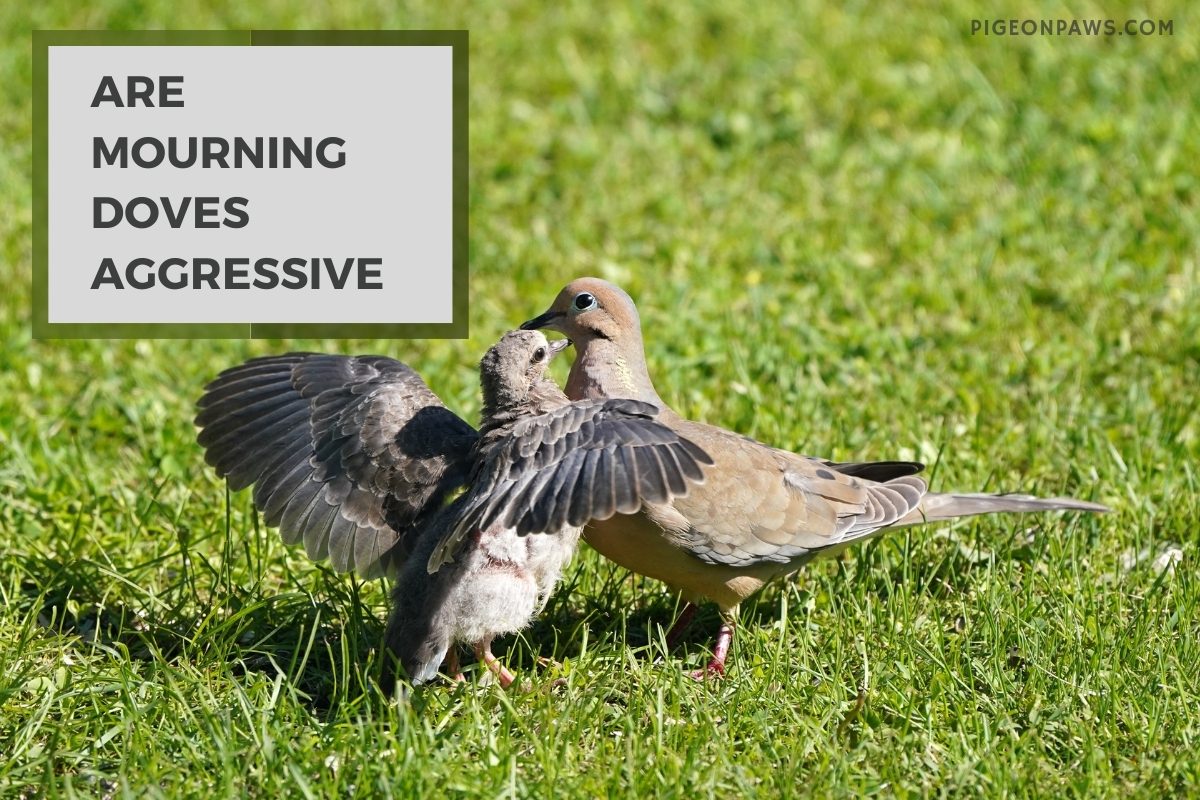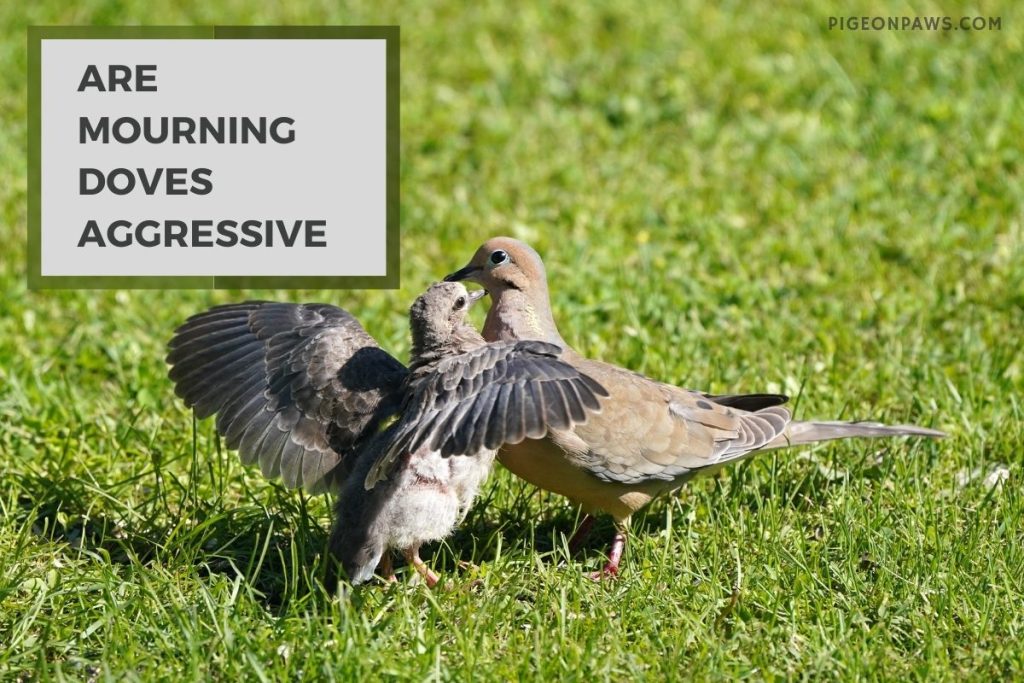Are Mourning Doves Aggressive? Cool or Cruel?

Mourning Doves are among the most peaceful and gentle birds in the world. In fact, many people consider them to be the most gentle of all bird species. While they are generally calm and docile, some people may wonder if Mourning Doves can become aggressive.
Mourning Doves are usually not aggressive. But the males can be very aggressive during the breeding season. In this state, they may posture themselves by puffing up their necks and actively pursuing other birds on the ground.
Don’t you think it’s pretty interesting? To know more about Mourning Doves’ behavior, stay till the end. Here you will know what makes them aggressive, how they protect their territory, and more. So read till the end!

Are Mourning Doves Aggressive to Other Birds?
Mourning doves are arguably one of nature’s most peaceful birds, often seen in family groups cooing and scratching in suburban yards and parks. While some might assume that these birds are territorial or aggressive, in reality, mourning doves are gentle creatures that do not bully other birds.
These birds have been observed chasing away other birds that come into their territory, but this is more likely an effort to protect their young rather than an act of aggression. In addition, they are known to peacefully share the same space with other birds, such as finches, sparrows, and
They are not considered a significant threat to other bird species. They are primarily seed eaters and are not known to compete aggressively with other birds for food or territory.
While Mourning Doves may compete with other birds for nesting sites, this is not typically considered a significant threat, as they are known to be quite adaptable and often coexist with other bird species, even in relatively close proximity.
When do Mourning Doves Become Aggressive?
Mourning doves are generally considered peaceful birds, but under certain circumstances, they can become aggressive. The most common situations where they may exhibit aggressive behavior include:
Defending Their Territory
Like most animals, mourning doves will defend their territory from perceived threats. During the breeding season, males may become particularly territorial and will puff up their necks and hop in pursuit of other birds on the ground.
Protecting Their Food Source
Mourning doves are known for protecting their food sources and not being willing to share with other species of birds. If any attempt is made by other birds to claim the food, the mourning doves will puff up their necks and make angry-sounding noises.
Breeding Season
These birds may exhibit heightened aggression during the breeding season as they work to secure a nesting site and protect their offspring. This is normal behavior; the birds typically return to a calmer demeanor once the nesting period has ended.
Regardless of the situation, mourning dove aggression is usually short-lived and less severe than that of other birds. In most cases, the birds will simply puff up their feathers and make loud noises to scare away the intruder.
How to Identify Aggressive Behavior?
Now that we know when and why mourning doves might become aggressive let’s look at how to identify aggressive behavior.
Physical Signs
One of the most obvious signs of aggressive behavior in mourning doves is puffing up their necks and displaying black spots on their wings. This is a sign that they are feeling threatened and are ready to defend themselves.
Sound And Vocalizations
Along with physical signs, mourning doves may also vocalize aggressively. This can include loud cooing or hissing sounds, which are a warning to other birds to stay away.
Interaction With Other Birds
Observing how mourning doves interact with other birds can also give clues about their aggressive behavior. For example, if you see a mourning dove chasing other birds away from a food source, this could be a sign that it is feeling threatened and is trying to protect its food.
Are Mourning Doves also skilled at navigating like pigeons?
Mourning Doves, often seen perched on telephone wires, possess an impressive ability for pigeon navigation: unraveling their orientation skills. Despite their mournful coo, these doves demonstrate remarkable navigational capabilities, relying on magnetic fields and landmarks to successfully navigate long distances during migration.
Mourning Dove Fight Off Squirrel as Self-Defence
Conclusion
Mourning Doves are not generally considered an aggressive species of bird. Although they may show some territorial behavior during the breeding season, this usually does not lead to aggression or harm.
With the proper care and respect for their space and needs, Mourning Doves can be a peaceful and enjoyable addition to any backyard.

